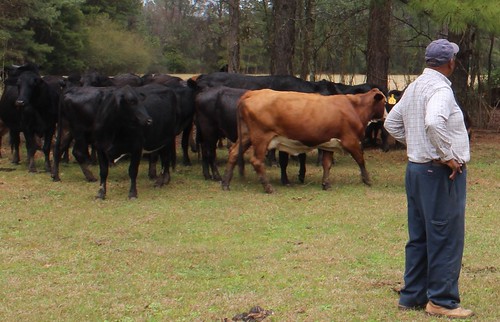
Raising hay and working the farm was once something extra for Charles McLaurin. After retiring after 35 years as a school teacher, he’s enjoying his new full-time job as a cattle rancher in Leake County, Miss., where he not only leads a healthy head of cattle but also serves as a steward of natural resources.
With the help of USDA’s Natural Resources Conservation Service (NRCS), he is using conservation to improve his operations and help the environment, including the Pearl River and Gulf of Mexico, where the water from his farm eventually flows.
McLaurin qualified for financial assistance through StrikeForce for Rural Growth and Opportunity initiative as a beginning and limited resource rancher. The initiative addresses high-priority funding needs in rural communities in 16 states, including Mississippi.
He worked with NRCS to remove invasive grasses, plant pastures and build cross fencing. With the right grass and number of pastures, he was able to operate a rotational grazing system on his land. When cattle are alternated among pastures, it prevents overgrazing. Overgrazed land is bad for the grass, and it makes soil vulnerable to wind and water erosion. Sediment and nutrients in water can pose water quality problems for rivers and oceans.
“By cross fencing, he has created two grazing cells. He can rotate his cows to get better, uniformed grazing for his livestock operation,” NRCS Supervisory District Conservationist Priscilla Williamson said.
McLaurin fought off invasive weeds, allowing bahia and bermuda grasses to prosper. Not only is the right grass good for animal health, it also ensures it grows strong and holds onto soil, preventing erosion. These grasses act as a filter for nutrients and sediment, helping prevent water quality problems downstream.
These conservation steps are important on his land, even though it’s about three hours from the Gulf of Mexico. Water from his farm flows into the Yockanookany River, a small river that flows into the Pearl River, which sends its water to the Gulf.
With 26 calves this season, McLaurin is ready for more success in the beef market and is continuing to conserve the land. “NRCS has helped me so much and all the good things they have done for me,” he said.

